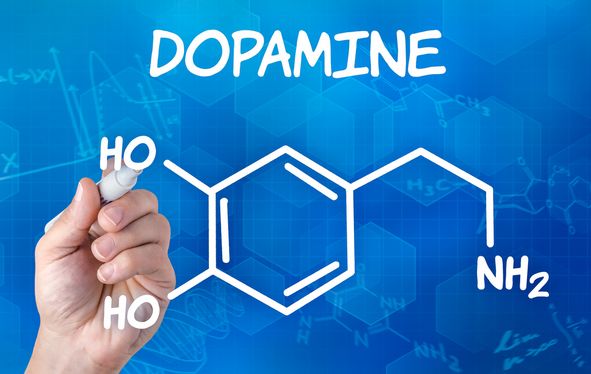First, let’s begin in doing what dopamine is and why it’s so important. Dopamine develops from a specific amino acid known as Tyrosine. Dopamine is definitely an vital neurotransmitter that has a host of various role’s it plays within the body, a few of which is helping to support thinking processes. Memory, mental focus, concentration, emotional states, movement and sleeping are simply a handful of those vital roles. It features a essential role in supporting both our both mental and physical health.

Dopamine comes from a location from the brain known as the substantia nigra. The substantia nigra is a number of neurons that produce dopamine for your nervous system (CNS). The way that the mind works is really a highly complicated technique of signals and nerve transmissions. Neurons within the brain actually release chemical messengers (called neurotransmitters) through their synapses (nerve endings) that visit one other synapses and produce specific signals. Neurotransmitter’s are continually developing into the synapses and reabsorbed. This is why your brain will be able to communicate so efficiently and quickly.
Dopamine’s process in the brain is highly complex, but I’ll try and break it into a level where most people can understand it. When increase dopamine naturally is released, it requires a place to go. Where it travels are classified as receptors. The dopamine molecule fits together as being a lock and key together with the receptor, creating an action with the neuron. The message the dopamine molecule was carrying will be continued with all the neuron who’s reaches and it continues until it spreads through the entire neurological system. After all from the receptors are full of the dopamine molecules, our bodies needs to reuse the dopamine that wasn’t utilized. This is called reuptake in medical terms. Re-uptake is often a method that allows the dopamine levels (and all sorts of other neurotransmitter levels) to be steady. Gleam process known as the negative feedback loop that prevents too much of a neurotransmitter from being produced. The problem with most people is their dopamine receptors become inactive or destroyed, plus the precursors to doopamine.
Having the proper numbers of dopamine inside the brain and nervous system will assure the following:
Reduced cravings
Reduced addictions
High level of motivation
Reduced degrees of depression.
Reduced anxiety
Higher level of clarity and concentrate
Satisfaction in personal life
Healthy love life
Low dopamine levels contained in several different ways in a number of people. The most typical unwanted side effects experience are depression and laziness. Men and women will lack the energy and motivation to complete daily activities that they never had problems performing before. Selection and concentrating on activities also gets to be a problem when dopamine levels are inadequate. may have trouble focusing or making decisions. Becoming cold along with the wherewithal to lose weight are among the other common unwanted side effects of low dopamine levels.
Low dopamine levels can be achieved by a various reasons. A few of the known causes to bring about low dopamine levles are:
High consumption of caffeinated foods and beverages
Alcohol
Fatty foods. (fast food, poor meat, etc.)
Refined foods including white sugar, white flour and white breads.
High levels of stress inside the job possibly at home.
Sleep disorders.
Poor dietary habits
Prescription medications (talk to your doctor for a list of those that)
Illegal drug abuse (marijuana, cocaine, etc.)
I am going to go into detail a bit more on drugs and the way they influence dopamine on the physiological level. There are countless drugs who have both negative and positive effects on dopamine. There are also specific enzymes that really help from the break up of dopamine. These enzymes are known as monamine oxidase’s (most commonly known as MAO.) The molecules that bind to dopamine receptors and stimulate dopamine are known as agonists. Around the opposite side in the coin, molecules that bind for the receptors and stimulate dopamine release are called antagonists. Simply speaking, agonists elevate levels and antagonists prevent dopamine from released.
As pointed out, illicit drugs negatively impact dopamine levels inside the brain and central nervous system. Some drugs, for example amphetamine (also referred to as speed) and cocaine acquire desired physical effect by affecting the making of neurotransmitters from the brain. Many people think they lessen the levels of dopamine, during fact, they improve the levels of dopamine. Physiologically, they prevent dopamine re-uptake once it has been released by destroying receptors, thus preventing the negative feedback loop. Long term drug abuse generates a concept called sensitization, which can be where the body will continue to produce more dopamine plus more receptors simply because that they are becoming destroyed along with the negative feedback loop becomes distorted. Long story short, avoid illicit drugs to make certain adequate neurotransmitter balances in the brain.
Now you may be wondering ways to lift up your dopamine levels, right? Well, in case you have low levels of dopamine, you’ll be able to consume foods containing tyrosine to improve the imbalance. Almonds, sesame seeds, dairy foods, bananas, and avocados are all good dietary options for tyrosine.
Nutritional dopamine supplements can be one of the most efficient methods to improve your dopamine level as well as lowering a majority of the symptoms as listed above. You will find a number of products for sale to date that will aid with dopamine levels. The dopamine supplement that individuals recommend most to the patient’s and customers is Balance-D. It is just a clinically proven supplement to elevate dopamine levels. The side effects of NeuroScience’s Balance-D are incredibly few and far between with hardly any side effects in in comparison to many drugs.
Dr. Jacob Canfield can be a chiropractor containing seen over 10,000 patient’s and possesses special certifications in nutrition and professional grade supplements. He’s practiced in Atlanta, Georgia and Detroit, Michigan and holds degrees in Biomedical Science and Biology.
For more details about dopamine deficiency view this useful internet page: look at this
